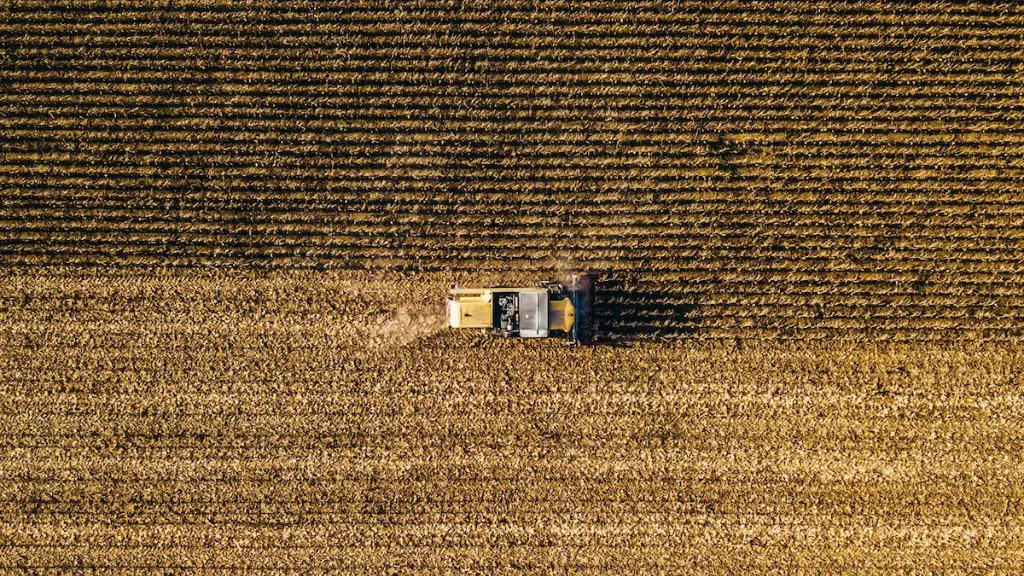Agricultural engineering is the engineering discipline that applies engineering science and technology to agricultural production and processing. Agricultural engineering combines the disciplines of animal biology, plant biology, and mechanical, civil, electrical and chemical engineering principles with knowledge of agricultural principles.
Agricultural engineering is a field of engineering that applies engineering principles and technology to solve problems in the field of agriculture. Agricultural engineers work in a variety of areas, including crop production, livestock management, soil and water conservation, and food processing.
What is the meaning of agricultural engineering?
The field of agricultural engineering includes the design of farm machinery, the location and planning of farm structures, farm drainage, soil management and erosion control, water supply and irrigation, rural electrification, and the processing of farm products. Agricultural engineers work to improve the efficiency and sustainability of agricultural systems.
Agricultural engineers are responsible for improving the efficiency of agricultural production and solving problems that arise in the agricultural industry. They work on a variety of issues, such as power supplies, machinery efficiency, and environmental pollution. They also work on the storage and processing of agricultural products.
Is agricultural engineering a good major
An AE degree is a great way to start your career in agriculture. With an AE degree, you will be able to design and develop new processes, systems, and products. The job opportunities are plentiful and diverse. Currently, the demand for AE’s is at an all time high.
While ZipRecruiter is seeing annual salaries for Agricultural Engineers ranging from $29,500 to $106,500, the majority of salaries currently fall between the 25th and 75th percentiles, with salaries of $61,000 and $87,000, respectively. Top earners in the 90th percentile make $101,500 annually across the United States.
What is an example of Agricultural Engineering?
Agricultural engineers are responsible for integrating technology with farming. This includes designing new and improved farming equipment that is more efficient, as well as performing new tasks. They also design and build agricultural infrastructure, such as dams, water reservoirs, warehouses, and other structures.
The BTech Agricultural Engineering Syllabus covers a wide range of topics related to food production and processing, agricultural machinery, and so on. These topics are essential for students who want to pursue a career in this field.
How many years is agricultural engineering?
The Bachelor of Science in Agricultural Engineering is a five-year degree program that provides students with knowledge and skills on how to design agricultural machinery, agricultural equipment, and agricultural structures. The program also trains students on how to manage and maintain agricultural production systems.
Agricultural engineers are in charge of field designs, barn structures, and storage facilities to help farms produce, store and deliver products effectively. They are responsible for temporary storage facilities for a farming season to make compensation for an increase or lower volume period in a company.
What skills are required for agricultural engineering
Agricultural engineers need to have strong problem-solving skills in order to find effective solutions to the various challenges that they face. They also need to be analytical in their thinking in order to identify and assess the key issues at play in any given situation. Strong communication skills are also essential in this field, as agricultural engineers need to be able to clearly explain their ideas and proposals to others.
If you’re not strong in math, a degree in Agricultural Engineering may be tough to handle. A lot of the coursework involves using mathematical and technical skills. However, if you’re willing to put in the extra effort, you can succeed in the program.
Which state is best for Agricultural Engineering?
California is the highest paying state for agricultural engineers, according to our research. Illinois, West Virginia, and Ohio also rank high on our list. Illinois has the most agricultural engineer jobs, with 279. The highest 10 percent in the state earn an average of $118,000 per year.
Many colleges and universities offer excellent programs in agricultural sciences. The best agricultural degrees at the baccalaureate level include agroecology, food systems, environmental sciences/studies, biological sciences, international development, animal science, nutrition & food sciences, and dietetics, nutrition, and food sciences, among others. Students interested in pursuing a career in agriculture should research programs to find the one that best fits their interests and needs.
Do agricultural engineers get paid well
If you are interested in becoming an agricultural engineer, you can expect to earn a salary somewhere between $51,160 and $166,620, depending on your experience and talent. Agricultural engineering is a growing field, so there is potential for high salaries and advancement. With that said, agricultural engineering can be a demanding and challenging field, so be sure to research the career thoroughly before making any decisions.
There will be an average of 100 job openings for agricultural engineers each year over the next decade. However, employment growth in this field is expected to be limited. Agricultural engineers work in a variety of settings, including farms, agricultural equipment manufacturing companies, and government agencies. They may also work in food processing and environmental engineering.
What are some benefits of being an Agricultural Engineer?
Most engineers who work full-time usually earn benefits. These benefits can include health insurance, sick leave, paid vacation, as well as a retirement plan. This is typical for most full-time employed engineers.
Agricultural engineering is a field of engineering that deals with the design, construction, and improvement of agricultural machinery, equipment, and buildings. Agricultural engineering can be divided into six major areas of specialization: farm power and machinery engineering, soil and water engineering, processing or post harvest systems engineering, farm structures and environmental control engineering, forestry and wood product engineering, and food engineering.
What is the difference between agriculture and agricultural engineering
There are a few key differences between a BSc in Agriculture and a BTech in Agricultural Engineering. The most notable difference is that a BSc in Agriculture is a degree program focused on the larger subject of Agriculture, while a BTech in Agricultural Engineering is a specialization within the interdisciplinary field of Agriculture and Engineering. Agricultural Engineers typically have a more in-depth knowledge of things like irrigation and drainage systems, soil and water conservation, and agricultural machinery. They may also be more adept at designing and implementing new technologies in the field of agriculture.
There are many different types of agricultural engineering, but some of the most common are agricultural machinery and structural design, bio engineering, waste management, and agricultural resource management. Agricultural engineering is a vital field that helps improve the efficiency of agricultural production and protect the environment.
Conclusion
Agricultural engineering is the application of engineering principles and technologies to solve problems in agriculture. Agricultural engineers work in a variety of areas, including farm machinery, power and environmental engineering, food processing and storage, and rural infrastructure.
The role of agricultural engineering in agriculture is to apply engineering principles and technology to solve problems associated with agricultural production and rural living. Agricultural engineers work with farmers, ranchers, and other agricultural producers to improve farming methods, develop new Agricultural engineering also applies engineering principles to animal production, food processing, and natural resource management.





